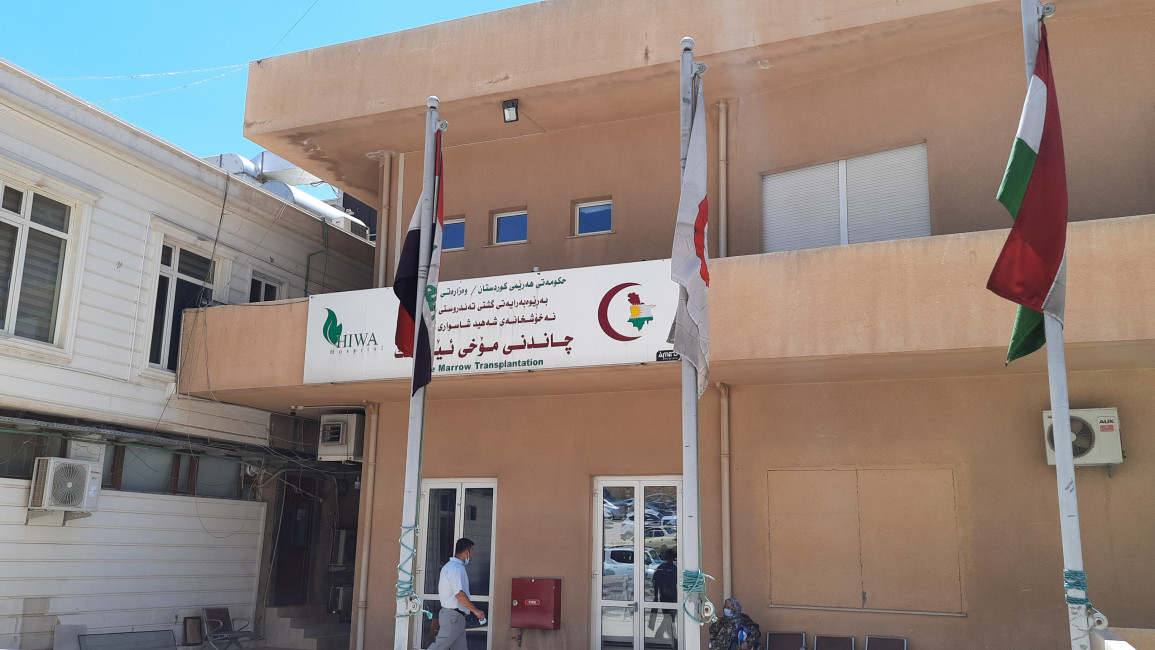Medicine shortages force public hospitals in Sulaimaniyah to halt key services
Crucial services at public hospitals in Sulaimaniyah province of the Iraqi Kurdistan region were forced to a halt early this week due to medicine shortages, Kurdish officials told The New Arab.
"Medicine and medical equipment have run short to a great extent that we were obliged to halt basic services at some public hospitals," Saman Sheikh Latif, spokesperson of Sulaimaniyah General Health Directorate told The New Arab during a phone interview.
"Crucial services at Hiwa Cancer Hospital, as well as various public hospitals for maternity, children and vascular disease have also ceased operating due to the shortages," the official added.
Public hospitals in the northern Kurdistan region are administered by the health ministry of the Kurdistan Regional Government (KRG).
The ministry has contracts with several private sector companies to supply medicine and medical equipment for the public hospitals at lower prices compared to the market. The Iraqi federal government also offers the region a share of medications.
According to the agreement signed between the two sides, the Kurdish government should pay the private companies two per cent of their financial entitlements on a regular weekly basis.
Omar Gulpi, a lawmaker from the Islamic Justice Group opposition party and member of the finance parliamentary committee, told The New Arab the shortages in Sulaimaniyah are a result of "public banks lacking the funds to pay the companies."
"The Kurdish authorities in Sulaimaniyah have stopped paying the companies for several months now," he added.
Gulpi further noted that both Erbil and Duhok provinces have not witnessed shortages.
He also clarified that a total sum of one billion and seven million Iraqi dinars (more than $US 1 million) is needed to pay off the debt to the private companies in Sulaimaniyah.
"This is a very little sum of money compared to the large amounts that are gained from the province's customs. More than 100 billion Iraqi dinars alone come in from the customs of Sulaimaniya province, Garmian, Raparin and Halabja areas," Gulpi said. "Patients from Sulaimaniyah are victims of political rivalries among the ruling parties and a bad governance."
For his part, Sabah Hawrami, the head of Sulaimani’s health directorate told Rudaw on Tuesday, "We owe ten billion dinars (almost $US 7 million) to pharmaceutical companies, and the health situation in Sulaimani is precarious due to a small budget and being in debt to these companies."
Three main ruling parties, the Kurdistan Democratic Party (KDP), the Patriotic Union of Kurdistan (PUK), and the Change Movement (Gorran), have formed a fragile alliance since 2018 to form the current KRG cabinet headed by PM Masrour Barzani from the KDP.
Recently, the three parties have been blaming each other for not implementing a reform law passed by the region's parliament in 2020.
The conflict between the political parties has practically divided the Iraqi Kurdistan region into two separate administrations with Erbil and Duhok provinces mainly administered by the KDP, while the PUK and Gorran jointly administer Sulaimaniya and Halabja provinces.
KDP and PUK, which each have their own separate militia and security forces, are now competing for the Iraqi presidency and the planned parliamentary elections in October. For its part, Gorran, which splinted from PUK in 2009, is also involved in a fierce rivalry with the PUK in Sulaimaniyah.
Awat Sheikh Janab the KRG's minister of finance is from the Change Movement has been running the ministry from home due to interference by the PUK in financial affairs in Sulaimaniyah, a close source from Gorran told The New Arab on the condition of anonymity since they were not allowed to speak for the press.
"Sheikh Janab has submitted his resignation to Gorran, but the party has yet to accept it because they are debating whether to withdraw from the KRG cabinet," the source added.
The New Arab contacted Sheikh Janab for comment, but he was unavailable.



